20th Century Women Blu-ray Movie
Home20th Century Women Blu-ray Movie 
Blu-ray + UV Digital CopyLionsgate Films | 2016 | 119 min | Rated R | Mar 28, 2017
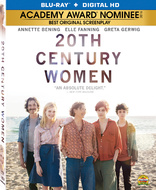
Price
List price:Amazon: $19.99 (Save 20%)
Third party: $19.99 (Save 20%)
Only 3 left in stock (more on the way).
Movie rating
7.5 | / 10 |
Blu-ray rating
| Users | 0.0 | |
| Reviewer | 4.0 | |
| Overall | 4.0 |
Overview
20th Century Women (2016)
The film focuses on three women in Santa Barbara in 1979 who set out to teach the teen son of one of them how to be a man.
Starring: Annette Bening, Elle Fanning, Greta Gerwig, Billy Crudup, Lucas Jade ZumannDirector: Mike Mills (II)
| Drama | Uncertain |
| Coming of age | Uncertain |
| Comedy | Uncertain |
Specifications
Video
Video codec: MPEG-4 AVC
Video resolution: 1080p
Aspect ratio: 1.99:1
Original aspect ratio: 2.00:1
Audio
English: DTS-HD Master Audio 5.1 (48kHz, 24-bit)
Subtitles
English SDH, Spanish
Discs
Blu-ray Disc
Single disc (1 BD)
UV digital copy
Packaging
Slipcover in original pressing
Playback
Region A (C untested)
Review
Rating summary
| Movie | 4.0 | |
| Video | 4.5 | |
| Audio | 4.5 | |
| Extras | 2.5 | |
| Overall | 4.0 |
20th Century Women Blu-ray Movie Review
Reviewed by Jeffrey Kauffman March 28, 2017At a funeral I attended a few days ago, I was kind of surprised to hear that the deceased, a sweet elderly lady I had known in her “golden years”, had divorced her husband after only a couple of years of marriage and had then raised two kids as a single mother back in the “Dark Ages” of the 1950s, when such things were far from the norm. This woman hadn’t just had a remarkably successful career (basically achieving something akin to the career arc whimsically documented in the recently reviewed How to Succeed in Business Without Really Trying), she had also been a kind of “den mother” to a whole host of neighborhood kids, many of whom now (as not exactly spring chickens themselves) showed up to remember her fondly, talking about what an influence she had been on them in their younger years. There’s something at least somewhat similar at play in Mike Mills’ semi-autobiographical 20th Century Women, a film which offers Annette Bening a wonderful opportunity for a really nuanced character role as Dorothea Fields, a single mom attempting to raise (and nurture) her son Jamie (Lucas Jade Zumann) while also acting as a mentor of sorts to a host of oddballs who rent rooms in her boarding house. In a way the dynamic between a free spirited mother and her questioning son, with both of them in the midst of a bunch of decidedly unusual hangers on, may sound a bit like The World According to Garp, at least in passing, but the tone of 20th Century Women is decidedly more naturalistic (which is not to say it lacks whimsy), though similarly vignette driven.
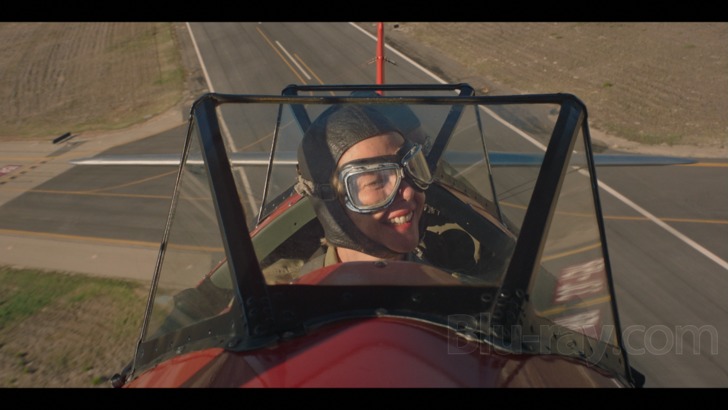
Structural artifices which might have sunk any number of other films end up never seriously derailing 20th Century Women, despite the fact that the screenplay by Mills offers several competing narrators, timelines that don’t necessarily unfold chronologically, and several kind of oddly placed “reveals” that document certain characters’ fates. The film opens in late seventies Santa Barbara with the shocking sight of an old (like circa 1960s) Ford on fire in the parking lot of a grocery store. That turns out the be the vehicle of Dorothea and Jamie, who watch it burn helplessly. When the fire department shows up to extinguish the flames, Dorothea invites the entire station house over to her place for her birthday celebration that evening. Jamie is of course aghast.
Mills doesn’t detail how Dorothea managed to buy the dilapidated mansion she lives in, nor does he (initially at least) dwell on how her house came to be filled with a kooky assortment of roomers, but the home is in fact the residence not just of Dorothea and Jamie, but of William (Billy Crudup), a handyman who’s helping fix up the place, Abbie (Greta Gerwig), a young woman recovering from cervical cancer, and at least by default Julie (Elle Fanning), a childhood friend of Jamie’s who sneaks into the home at regular intervals to sleep (as in actually sleep) with Jamie.
While Dorothea doesn’t have the aversion to the male gender that Jenny Fields did in The World According to Garp, she hasn’t had a partner of any duration since her divorce, and with Jamie now in the throes of a sometimes problematic puberty, she wonders about male influence in his life. William would seem to be the perfect candidate, except that he and Jamie have virtually nothing in common. Reviewing her options, Dorothea comes to the unusual conclusion that Julie and Abbie would be the best alternatives to her to help nurture Jamie through his “awkward” phase. Thus, a trifecta of “20th century women” begin to more or less parent Jamie, a sweet kid who is nonetheless trying to figure out his lot in life, as well as the peculiarities of his free spirited but still relatively down to earth mother.
The “narrative” (such as it is) of 20th Century Women is a decidedly loosey-goosey affair, with at least a minimum through line documenting Jamie’s maturation as well as other subplots involving Abbie’s health issues, a burgeoning romance between Abbie and William which is over about as soon as it’s begun, and Julie’s “lessons” helping Jamie to act more like a man. The film just kind of floats from vignette to vignette, with voiceover providing segues and (as mentioned above) kind of patently odd cutaways that either look backward to help fill in some story gaps or (even more oddly) forward several decades to reveal eventual outcomes, especially with regard to one central character. It’s actually kind of refreshing to see a film which isn’t hemmed in by traditional strictures of the “Syd Field” school of three act writing regimens, but that said, 20th Century Women kind of plays like a hazy drug infused dream at times (something that may be appropriate given some hints dropped at Jamie’s activities when he runs away to Los Angeles for a concert after finding out about Dorothea’s recruitment of Abbie and Julie to be “parental assistants”).
The other refreshing thing about Mills’ writing is how it studiously avoids overwrought melodrama. On at least two occasions, I frankly thought the film was going to tip over into “kitchen sink drama” angst, if not outright tragedy. The film has several interstitials of Jamie tooling down Santa Barbara roads on his skateboard at a high rate of speed and without a helmet on, and (especially considering there’s another brief health scare in the film), I had a sense of foreboding that some horrifying accident was on the horizon. The whole Julie angle also raised the hairs on the back of my neck when her voiceover started talking about a new stepfather in her life in terms of why she was spending so much time at Jamie’s house, a plot point I momentarily thought might be leading toward (sexual) abuse, a fear which was commendably unfounded. Instead, the film is decidedly relaxed about things, working up to some significant emotion simply be detailing the ins and outs of daily life for this motley crew of characters.
Bening has received the lion’s share of praise for her performance in 20th Century Women, but the entire cast is really enjoyable, especially relative newcomer Zumann, who brings a natural honesty to Jamie that makes him an extremely sympathetic character. The film is frankly full of loose ends which are never overly detailed, not to mention tied up in a neat bow, despite the film’s “coda” detailing the future of the major characters. Kind of like Dorothea’s home environment, things are a little messy in 20th Century Women, which may be one reason why the film, despite its (figurative and literal) flights of fancy, seems so grounded in reality.
20th Century Women Blu-ray Movie, Video Quality 
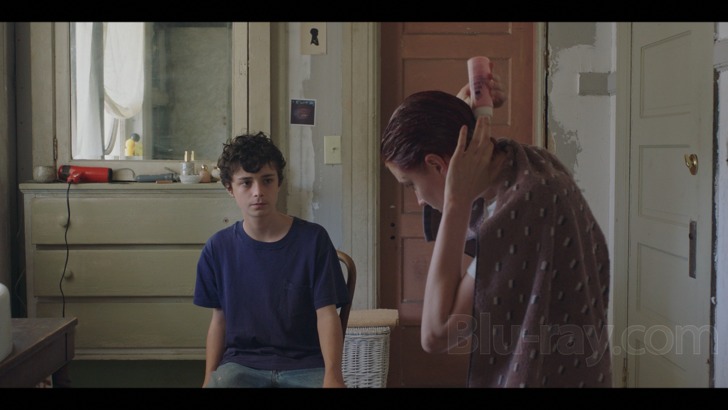
20th Century Women is presented on Blu-ray courtesy of Liongate Films with an AVC encoded 1080p transfer in the somewhat unusual aspect ratio of 1.99:1. A really interesting interview with DP Sean Porter documents how he was experimenting with a host of digital cameras when shooting Green Room (fans of that film may want to revisit my interview with that film's dialect coach). That ultimately led him to choose the Alexa Mini for 20th Century Women and the results offer the same crisp and generally well detailed look that has come to be associated with the Alexa line, though there's also occasional murkiness in some of the interior scenes (notably dimly lit scenes inside Dorothea's home and a couple of club sequences). Fine detail is generally great, though, and when the film gets outside, the palette perks up considerably. There are no problems with image instability and no compression anomalies.
20th Century Women Blu-ray Movie, Audio Quality 
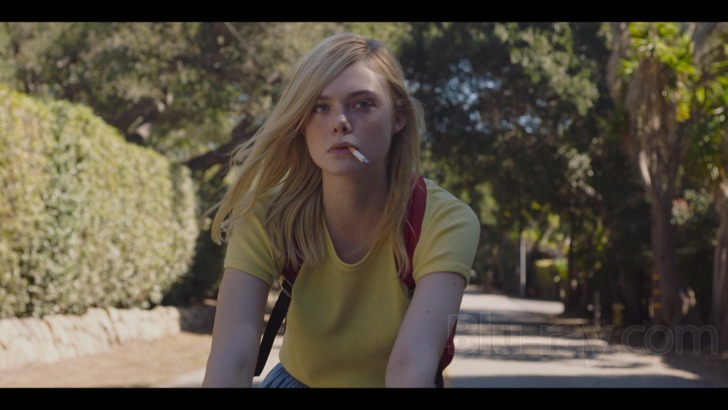
20th Century Women kind of flirts with nascent punk culture in yet another kind of glancingly offered subplot, and that helps the film's DTS-HD Master Audio 5.1 occasionally throb with some good energy. There are also several outdoor sequences where subtle but authentic sounding ambient environmental effects are splayed around the surround channels. The film's actual underscore is kind of synthy ethereal at times, and that tends to spread quite winningly through the side and rear channels. Dialogue is rendered cleanly and is routinely well prioritized, even in the noisier club sequences.
20th Century Women Blu-ray Movie, Special Features and Extras 
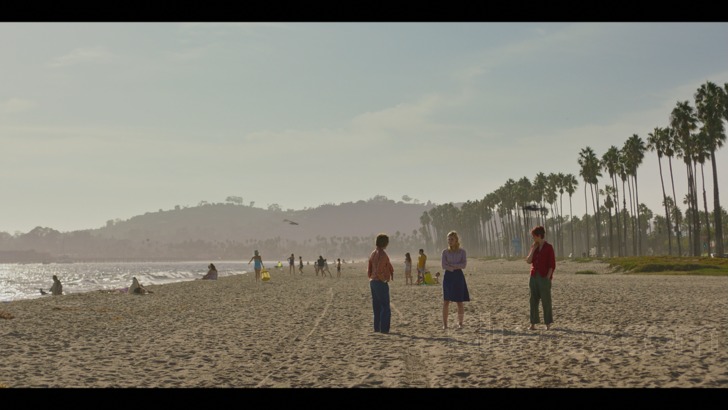
- Audio Commentary with Director Mike Mills gets into some of his own personal history which informed the film.
- Making 20th Century Women (1080p; 9:31) is standard EPK fare elevated by the participation of this particular cast and crew.
- 20th Century Cast (1080p; 10:49) offers Mills and the cast talking about the characters.
20th Century Women Blu-ray Movie, Overall Score and Recommendation 
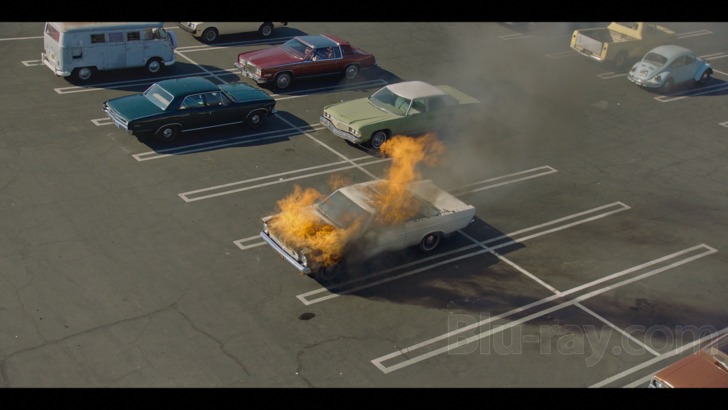
If one takes Mike Mills at his word and accepts 20th Century Women as at least a partial recreation of his actual memories, the film's careening structure might suggest the writer-director could have a minor case of ADHD (this is said in jest, in case that's not clear). The film just kind of goes hither and yon in a willy nilly fashion, meaning all sorts of plot points are trotted out and then only fitfully developed if at all. My major problem with this film is that the characters are so interesting, I just wasn't satisfied with the kind of cursory way they're dealt with in the film. It's therefore even more of a testament to the generally undeniable charm Mills offers in this film that it's actually easy to accept its flighty (sorry, for those who have seen it) tendencies. Technical merits are generally strong, and 20th Century Women comes Highly recommended.
Similar titles
Similar titles you might also like

Moonlight 4K
2016

Lady Bird
2017

Lymelife
2008

The Fabelmans 4K
2022

Call Me by Your Name
2017

Frances Ha
2012

Flashbacks of a Fool
2008

Mid90s
2018

The Squid and the Whale
2005

Boyhood
2014

Crooklyn
1994

Closet Monster
2015

While We're Young
2014

Nymphomaniac: Volume II
2013

Carnal Knowledge 4K
1971

My Life as a Dog
Mitt liv som hund
1985

Moonrise Kingdom
2012

Marjorie Morningstar
1958

Wild Tigers I Have Known
Standard Edition
2006

Pain and Glory
Dolor y gloria
2019